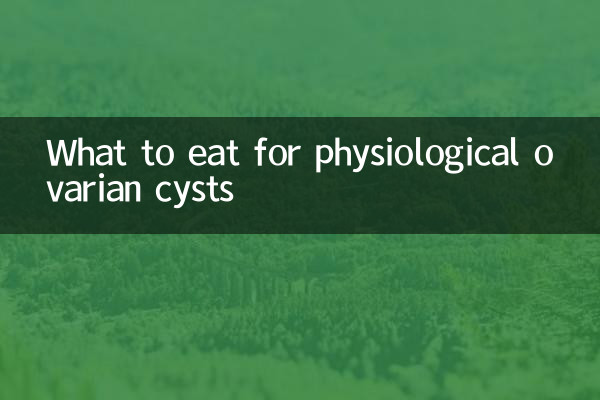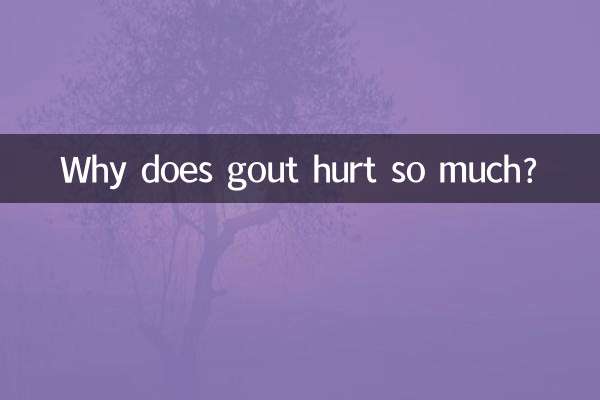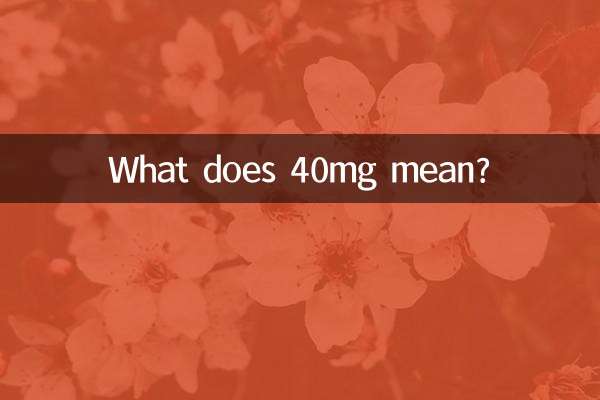What to eat for physiological ovarian cysts
Physiological ovarian cysts are one of the common gynecological problems in women. They are usually related to the menstrual cycle and will resolve spontaneously in most cases. Although diet cannot directly cure cysts, a reasonable diet can help relieve symptoms and promote recovery. This article will combine the hot health topics on the Internet in the past 10 days to recommend a dietary plan suitable for patients with physiological ovarian cysts, and provide structured data for reference.
1. Dietary principles for physiological ovarian cysts

1.Prioritize anti-inflammatory foods: Inflammation may worsen cyst symptoms, and choosing anti-inflammatory foods can help relieve discomfort.
2.high fiber diet: Fiber helps regulate hormone levels and reduces the risk of cyst growth.
3.Avoid hormone disruptors: Reduce the intake of foods that may disrupt endocrine.
4.Supplement antioxidants: Antioxidant foods protect cells from oxidative damage.
2. Recommended food list
| food category | Recommended food | Efficacy |
|---|---|---|
| vegetables | spinach, broccoli, carrots | Rich in fiber and antioxidants |
| fruit | Blueberries, apples, citrus | Anti-inflammatory, hormone regulating |
| whole grains | Oats, brown rice, whole wheat bread | Stabilize blood sugar and reduce inflammation |
| High quality protein | Fish, beans, lean meat | Provides essential amino acids |
| healthy fats | Flax seeds, nuts, olive oil | Anti-inflammatory, hormone regulating |
3. Foods to avoid
| food category | avoid causes |
|---|---|
| High sugar foods | May worsen inflammation and hormone imbalances |
| processed food | Contains additives and preservatives |
| caffeine | May stimulate cyst growth |
| alcohol | Affects liver hormone metabolism |
4. Association of popular health topics across the network
1.anti-inflammatory diet: Anti-inflammatory diet has become a hot topic in the health field recently, and it is highly consistent with the dietary recommendations for physiological ovarian cysts.
2.plant-based diet: A growing body of research shows that increasing plant-based food intake can benefit women's health.
3.gut health: The balance of intestinal flora is closely related to hormone metabolism, which is also one of the recent hot spots in the health field.
5. Examples of dietary therapy plans
| meal type | Recommended recipes |
|---|---|
| breakfast | Oatmeal + blueberries + flax seeds |
| lunch | Brown rice + steamed fish + broccoli |
| dinner | Quinoa Salad + Chicken Breast + Spinach |
| Extra meal | Nuts + apples |
6. Nutritional supplement suggestions
1.Vitamin D: Recent studies have shown a link between vitamin D deficiency and ovarian cysts.
2.Omega-3 fatty acids: Has anti-inflammatory properties, consider getting it from fish or supplements.
3.magnesium: Helps relieve menstrual discomfort symptoms.
7. Precautions
1. The recommendations in this article only apply toPhysiologicalOvarian cysts and pathological cysts require medical advice.
2. Dietary adjustments should be madestep by step, avoid sudden changes in eating habits.
3. If symptoms persist or worsen, seek medical attention promptly.
Through reasonable dietary adjustments, coupled with appropriate lifestyle and stress management, most physiological ovarian cysts can be well controlled. Remember, healthy eating habits not only help relieve current symptoms, but are also a long-term investment in preventing many gynecological diseases.

check the details

check the details